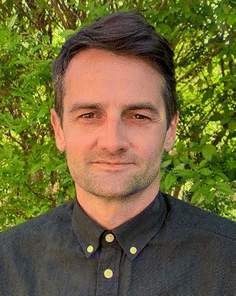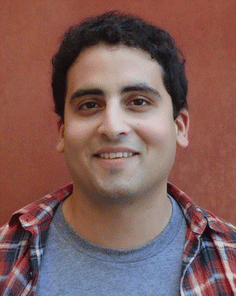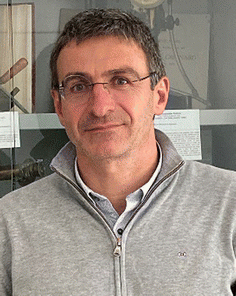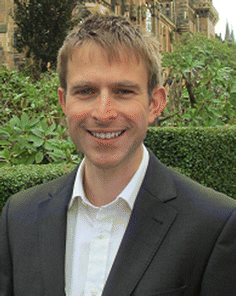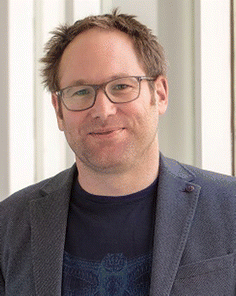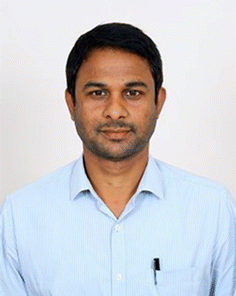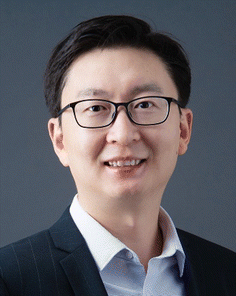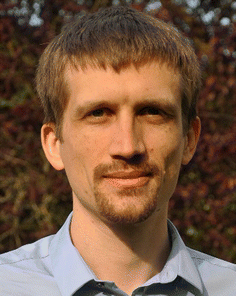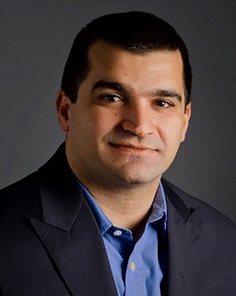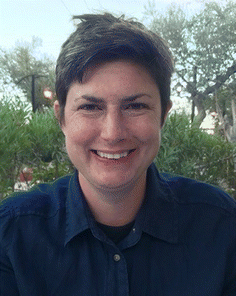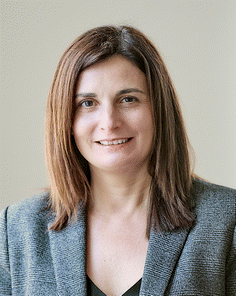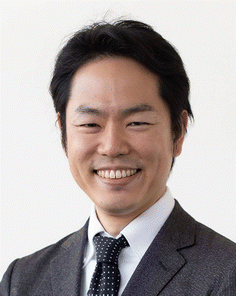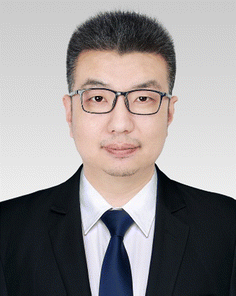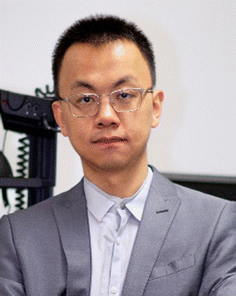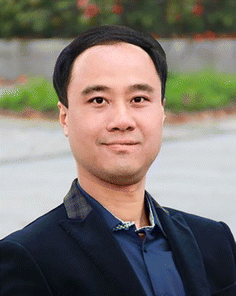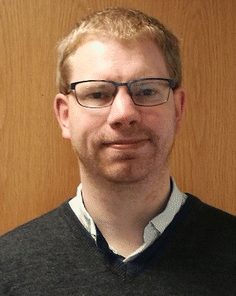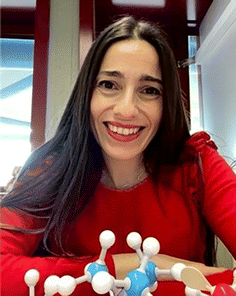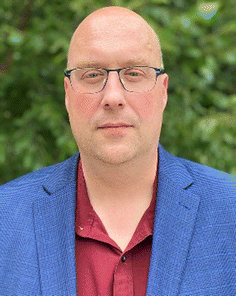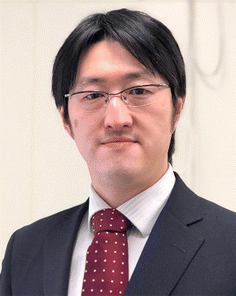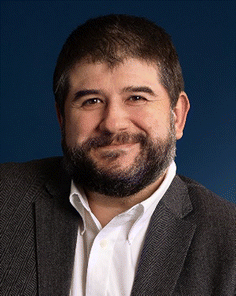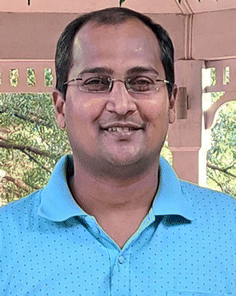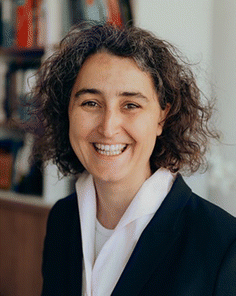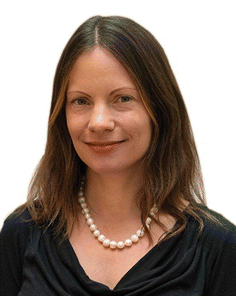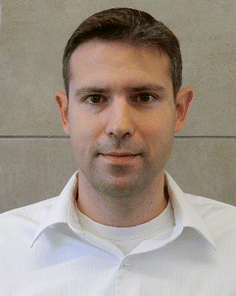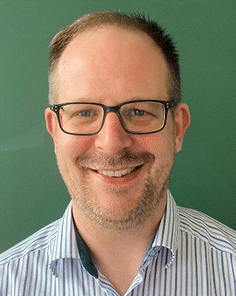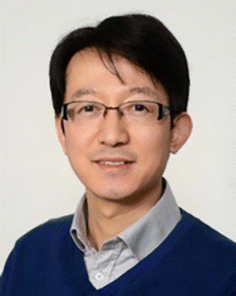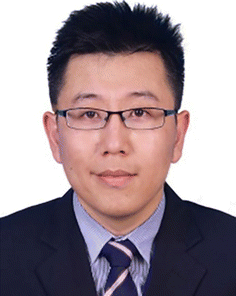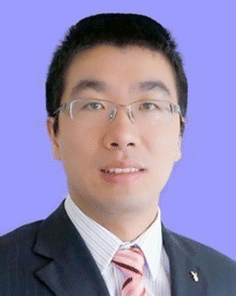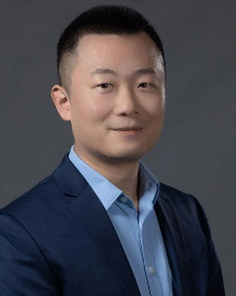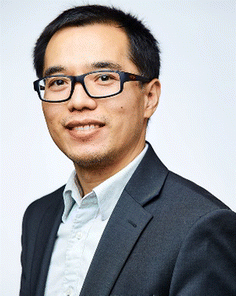Contributors to the Pioneering Investigators collection 2023: Part 1
Olivier Baslé is a CNRS researcher at the Coordination Chemistry Laboratory (LCC) of Toulouse in France. He completed his Master’s degree under the supervision of Professor P. H. Dixneuf at the University of Rennes in 2006 and obtained his PhD in 2009 at McGill University under the guidance of Professor C.-J. Li. After postdoctoral studies with Professor J. Rodriguez and T. Constantieux in Marseille and Dr D. Bourissou in Toulouse, he was appointed CNRS researcher at Ecole Nationale Supérieure de Chimie de Rennes in 2011. In 2018, he joined the LCC-CNRS in Toulouse. His research interests include organometallic chemistry and homogeneous (photo)catalysis.
Alex Bissember completed his PhD with Professor Martin Banwell at the Australian National University in 2010 and his postdoctoral research with Professor Greg Fu at MIT and Caltech. In 2013, he commenced his independent career at the University of Tasmania where he is currently an associate professor of chemistry and Australian Research Council Future Fellow. His research interests span synthetic organic, organometallic and inorganic chemistry in areas including transition-metal-based catalysis, coordination chemistry, target-oriented synthesis, electrosynthesis, and natural products isolation chemistry.
Didier Bourissou is Directeur de Recherche CNRS at the Laboratoire Hétérochimie Fondamentale et Appliquée (LHFA) in Toulouse, France. After education and training at the Ecole Normale Supérieure de Paris, Paul Sabatier University and Ecole Polytechnique, he was recruited as a CNRS researcher in 1998. He and his team are interested in main-group and transition metal chemistry, as well as biodegradable polymers. He has pioneered ambiphilic ligands and developed the concept of σ-acceptor ligands. He is also investigating the organometallic chemistry and catalytic applications of the coinage metals, in particular gold. He was awarded an ERC Advanced grant in 2023 to explore gold-redox chemistry.
Alistair Boyer studied at the University of Cambridge with Professor Andrew B. Holmes, then with Professor Steven V. Ley for his PhD on total synthesis. He worked as a PDRA with Professor Mark Lautens at the University of Toronto for two years on rhodium catalysis and then at the University of Glasgow with Professor J. Stephen Clark. As an independent researcher, he has been a Ramsay Memorial Research Fellow and a Royal Society – TATA University Research Fellow. The Boyer Research Group has developed several synthetic chemistry methodologies using 1-sulfonyl-1,2,3-triazoles as carbene precursors under rhodium catalysis, including the project in this collection.
Adrian B. Chaplin commenced his independent research career at the University of Warwick in 2011 as a Royal Society University Research Fellow, where he was subsequently promoted to full professor in 2023. He was awarded the RSC Harrison-Meldola Memorial Prize in 2015 and the RSC Sir Geoffrey Wilkinson Prize in 2023. Chaplin carried out his undergraduate studies at Massey University (New Zealand), received his PhD in 2007 from the Ecole Polytechnique Fédérale de Lausanne (Switzerland, with Paul Dyson), and carried out 4 years of postdoctoral work at the University of Oxford (with Professor Andrew Weller).
Rambabu Chegondi received his PhD (2009) from CSIR-IICT, Hyderabad and joined the University of Kansas, USA, as a post-doctoral researcher (2009). He joined CSIR-IICT, Hyderabad as CSIR-Pool-Scientist (SRA) in 2014 as an independent researcher. He is currently a principal scientist in the OS&PC department, CSIR-IICT, focusing on the development of new enantioselective desymmetrization methodologies and new process development of key APIs. He has received the Eli Lilly Asia Best Thesis Award 2009, AVRA-Young Scientist Award-2019, Thieme Chemistry Journals Award, and SERB-STAR Award. He is an FRSC and currently an Editorial Advisory Board Member for Organic Letters.
Yiyun Chen is a professor at the Shanghai Institute of Organic Chemistry, Chinese Academy of Sciences, and a member of China’s State Key Laboratory of Chemical Chemistry. Chen obtained a Bachelor’s degree in chemistry at Peking University and earned his PhD in organic chemistry at Princeton University. Afterward, he performed postdoctoral research at Harvard University and Howard Hughes Medical Institute, in chemical biology. Chen’s research interest focuses on biocompatible photochemistry, including organic photochemistry and photochemical biology. His research goal is to develop versatile biocompatible reactions to enable the photo-manipulation of biological functions for photo-diagnostics and photo-therapy applications.
Jean-Nicolas Dumez is a CNRS researcher (Centre National de la Recherche Scientifique) currently working at Nantes Université. He received his PhD in 2011 from Ecole Normale Supérieure de Lyon, and carried out post-doctoral research at the Weizmann Institute of Science and Southampton University, before moving in 2014 to Université Paris-Saclay as a CNRS researcher, then to Nantes in 2018. His research interests include the development of methods for the analysis of mixtures, NMR pulse sequences, and spin dynamics.
Patrick El-Khoury received a BSc in chemistry from the American University of Beirut (2006), a PhD in photochemical sciences from Bowling Green State University (2010), and postdoctoral training at the University of California, Irvine (2012). Soon after, he joined Pacific Northwest National Laboratory (PNNL) as a Linus Pauling Distinguished Postdoctoral Research Fellow (2013–2016). El-Khoury is currently a senior research scientist in the chemical physics and analysis group at PNNL. His work is focused on understanding molecules, low-dimensional (quantum) materials, plasmonic metals, and their interactions as gauged through multimodal (non)linear spectral nano-imaging.
Joy Farnaby did her DPhil at the University of Sussex in organometallic uranium chemistry with Professor Geoff Cloke. This was followed by three postdoctoral research positions, in the USA with Professors N. Hazari and W. J. Evans, and in the UK with Professor P. L. Arnold. Joy was then awarded a Junior Research Fellowship at Imperial College London under the mentorship of Professor N. J. Long, before moving to the University of Glasgow to take up a lectureship in 2016. The Farnaby Group work on exploratory and applied synthetic inorganic chemistry of the lanthanides and actinides.
Eva Hevia completed her PhD, from the Universidad de Oviedo (Spain) in 2003, under the supervision of the late Professor Victor Riera. In 2006, after a three-year appointment at the University of Strathclyde (UK) as a postdoctoral fellow working with Professor Robert Mulvey, she took up a lectureship at the same institution. Subsequently, she was promoted to full professor in 2013. In 2019, Eva moved to the University of Bern (Switzerland) where she is currently a professor in inorganic chemistry. Research in her group focuses on polar organometallic chemistry at the crossroads of inorganic, organic, and green chemistry. This includes the rational design of heterobimetallic reagents incorporating cooperative effects to perform key organic transformations.
Nobuhiko Hosono received his PhD in polymer chemistry from the University of Tokyo in 2011. From 2011 to 2014, he worked in the Institute for Complex Molecular Systems, Eindhoven Univeresity of Technology, as a researcher. From 2014 to 2018, he worked as an assistant professor at the Institute for Integrated Cell-Material Sciences (iCeMS), Kyoto University. In 2018, he was appointed to lecturer at the Graduate School of Frontier Sciences, the University of Tokyo. In 2021, he was appointed to associate professor at the Graduate School of Engineering, the University of Tokyo. His current interests include polymer recognition and separation technologies using nanoporous crystals.
Feng Li is a professor in the College of Chemistry at Sichuan University. Before joining Sichuan University, he was appointed as an assistant professor in the Department of Chemistry at Brock University (Canada) in 2014 and was promoted to associate professor in 2019. He was the winner of the Fred Beamish Award by the Canadian Society of Chemistry in 2021. He is currently leading a multidisciplinary research team at the interface of analytical chemistry, DNA nanotechnology, and laboratory medicine, with a focus on developing novel analytical tools for disease diagnostics and precision medicine.
Tianyi Ma is a world-leading scientist and RMIT University professor, an Australian Research Council Future Fellow, Fellow of Royal Society of Chemistry, and Clarivate’s Global Highly Cited Researcher. His ground-breaking research has been acknowledged by internationally recognised experts and authorities via the AAS Le Févre Medal, Young Tall Poppy Science Award, ARC Discovery Early Career Researcher Award, and Horizon Prize of Royal Society of Chemistry. He focuses on developing fundamental scientific breakthroughs and also up-scaling prototypes with far-reaching industry influence and real-life applications. Demonstrations and pilot plants have been established in Australia to drive his clean energy technologies to practical deployment and commercialisation.
Yiyong Mai received his PhD from Shanghai Jiao Tong University (SJTU) in 2007. He worked at McGill University as a postdoctoral fellow from 2008 to 2012, where he was promoted to research associate in 2012. He has been a professor in the School of Chemistry and Chemical Engineering at SJTU since 2013. He worked at the Max Plank Institute for Polymer Research as a visiting scholar from May to October of 2013. He was granted the National Science Fund for Distinguished Young Scholars of China. His present research interest involves polymer self-assembly and functional materials for energy-related applications.
David P. Mills hails from Caerphilly, South Wales. He did his MChem degree (2004) and PhD (2008) in chemistry at Cardiff University, the latter supervised by Professor Cameron Jones. He spent nearly five years at the University of Nottingham doing postdoctoral research in the group of Professor Steve Liddle before being appointed to the Department of Chemistry in the University of Manchester in 2012 as a lecturer, where he is now a professor of inorganic chemistry. His research interests are centred around the synthesis and study of complexes with atypical oxidation states, geometries and bonding regimes.
Ana Belén Muñoz García (PhD UAM 2011) has been an associate professor of physical chemistry at the Department of Physics at the University of Naples Federico II since May 2021. She is the 2022 awardee of the Roetti Medal as the best under-40 researcher in computational and theoretical chemistry in Italy and was selected as an Emerging Investigator by PCCP in 2020. Her main research lines concern heterogeneous functional materials for energy conversion and storage. Recipient of a 2022 HFSP Early Career grant, she is also pursuing multiscale modeling of biophysical processes. Besides science, Ana likes cats, hiking, travelling, classical music and Star Wars.
Michael Neidig is a professor of chemistry at the University of Oxford. He earned his BA from Colgate University, an MPhil from the University of Cambridge and a PhD from Stanford University. After brief stops at Dow Chemical as a senior research chemist and Los Alamos National Lab as a Director’s Postdoctoral Fellow, he joined the University of Rochester where he was the Marshall D. Gates, Jr. Professor of Chemistry, prior to moving to Oxford. His research focuses on structure, bonding and mechanisms in non-precious metal catalysis in organic synthesis, with a focus on organoiron catalysis.
Yoshiyuki Nonoguchi received his PhD from Nara Institute of Science and Technology (NAIST) under the supervision of Professor Tsuyoshi Kawai. He was awarded the JSPS Fellowship to conduct postdoctoral research at NAIST and the National Institute of Advanced Industrial Science and Technology under the supervision of Dr Kenji Hata. He was appointed as a junior associate professor at Kyoto Institute of Technology in 2021, after starting work at NAIST for ten years. His research interests focus on the development of organic and hybrid thermoelectric materials. He was selected as a Journal of Materials Chemistry A 2018 Emerging Investigator.
Emanuele Orgiu received his MSc and PhD both from the University of Cagliari (Italy) in 2004 and 2008, respectively. He was awarded a Fulbright (USA) in 2007, and he was a Marie-Curie fellow (Strasbourg, France) in 2009–2011. He became assistant professor in 2011 at the University of Strasbourg where he was awarded the MIT35 France in 2013. Since 2016, he has been an associate professor at the Institut national de la recherche scientifique/University of Quebec in Montreal (Canada). His current research focuses on understanding novel electronic and optical phenomena occurring in molecular solids and quantum materials.
Ponneri C. Ravikumar is currently an associate professor at the National Institute of Science Education and Research (NISER), Bhubaneswar, India. His research interests are on the activation of C–C/N/H bonds for the synthesis of biologically active organic molecules. He obtained his PhD at the IISc Bangalore (2006) and moved to the USA for postdoctoral experience. Initially he worked with Professor Fraser Fleming at Duquesne University, Pittsburgh, and later he moved to Yale University with Professor Seth B. Herzon. He was awarded the Chemical Research Society of India (CRSI) bronze medal in 2023. He has also received a teaching excellence award.
Andrea Rentmeister studied chemistry at the Technical University of Graz and the University of Bonn, where she earned her PhD in 2007. After a postdoctoral stay at the California Institute of Technology she started her independent career as a Junior Professor at the University of Hamburg in 2010. In 2013, Andrea was appointed as an associate professor at the Westfälische Wilhelms-Universität Münster, and in 2020 was promoted to full professor. She was awarded an Emmy Noether Fellowship (2012), the Hoechst-Award of the Aventis Foundation (2015), an ERC Consolidator Grant (2018) and an ERC Proof-of-Concept Grant (2022). Research in her lab focuses on RNA at the interface of chemistry and biochemistry and aims to understand and ultimately control the processes affecting mRNA expression and turnover.
Emilie Ringe earned her PhD in chemistry at Northwestern University. She then became a Gott Research Fellow at Trinity Hall as well as a Newton International Research Fellow at the University of Cambridge, UK. In 2014, she joined Rice University as an assistant professor. In 2018, she moved to the University of Cambridge, jointly appointed between the Department of Materials Science and Metallurgy and the Department of Earth Sciences, where she was promoted to professor in 2022. Her research interests include crystal growth and nanoscale control of light-matter interactions, with a specific focus on plasmonic, metallic nanoparticles.
Eric Rivard received his PhD from the University of Toronto (2004) and after NSERC-sponsored postdoctoral work he joined the Department of Chemistry at the University of Alberta, where he is now a full professor. He has held Alexander von Humboldt (2017) and JSPS (2015, 2023) Fellowships, was the inaugural Michael Lappert Memorial Lecturer (2016, Royal Society of Chemistry), and received the Strem Chemicals Award (Canadian Society for Chemistry) in 2018. He is currently an associate editor for the journal Aggregate. His research team focuses on molecular and polymeric main group chemistry with applications in luminescence, catalysis, and materials synthesis.
Michael Tauchert is a university lecturer at RWTH Aachen University. He studied chemistry at Freiburg University (diploma thesis with B. Breit) and received his PhD from Heidelberg University (P. Hofmann). After post-doctoral stays at LMU Munich (B. V. Lotsch), UC Berkeley and Yale University (R. G. Bergman and J. A. Ellman) he started his independent career at RWTH supported by a Liebig Fellowship (Funds of the Chemical Industry). He obtained his habilitation in 2022 under the guidance of Professor J. Okuda. He is a specialist in mechanistic investigations of metal complexes and his research focuses on the development of new catalysts exploiting so-called acceptor ligands.
Haining Tian is an associate professor at Uppsala University, Sweden. He obtained his PhD in applied chemistry at Dalian University of Technology (DUT) in 2009 and then moved to the Royal Institute of Technology (KTH) as a postdoc and senior researcher until 2014. He has been awarded the Göran Gustafsson Prize for young researchers (2016 small and 2020 large), the Young Investigator from European Photochemistry Association (2019) and Wallenberg Academy Fellow (2019). His research interests focus on the development and investigation of sustainable materials including inorganic materials, molecules and polymers for solar energy conversion and storage.
Zhiyu Wang received his PhD from Dalian University of Technology (DUT) in 2008. He served as a research fellow at the National University of Singapore and Nanyang Technological University from 2008–2012 and then as a Humboldt research fellow at Technische Universität Dresden until 2014. Since then, he has worked as a professor of chemical engineering and technology at DUT. His research focuses on developing cutting-edge batteries with high energy and reliability, as well as energy-saving hydrogen production technologies. He was honored as a Fellow of the Royal Society of Chemistry (FRSC) in 2020.
Xiaoyu Yang is an associate professor at ShanghaiTech University. He obtained his BSc in chemistry from Nanjing University in 2007. He then moved to the Shanghai Institute of Organic Chemistry (SIOC) and obtained his PhD under the supervision of Professor Biao Yu in 2012. After that, he spent three years as a postdoctoral researcher with Professor Dean Toste at the University of California, Berkeley. In 2016, he began his independent research at ShanghaiTech University. His current research interests include the development of new methodologies with asymmetric organocatalysis and carbohydrate chemistry.
Xin Zhang is a professor of chemistry at Westlake University, Hangzhou. Prior to joining the faculty at Westlake, Zhang was the Paul & Mildred Berg Early Career Professor and an associate professor of chemistry and biochemistry and molecular biology at Pennsylvania State University. Zhang’s research is focused on the chemistry of biological aggregates formed by proteins and RNAs under physiological and pathological conditions. Zhang’s work has received multiple awards, including the NSF CAREER award, NIGMS MIRA, Pew Scholar in the Biomedical Sciences, Sloan Research Fellowship, the Burroughs Wellcome Fund Career Award at the Scientific Interface.
Yuebing Zheng is an associate professor of mechanical engineering and materials science & engineering at the University of Texas at Austin. He holds a Temple Foundation Endowed Teaching Fellowship in Engineering. His research group innovates optical manipulation and measurement for the nanoscale and biological world. He has received the Materials Today Rising Star Award, National Institute of Health Director’s New Innovator Award, National Aeronautics and Space Administration Early Career Faculty Award, Office of Naval Research Young Investigator Award, and Beckman Young Investigator Award. He is a Fellow of the Royal Society of Chemistry and the Institute of Physics.
| This journal is © The Royal Society of Chemistry 2023 |

